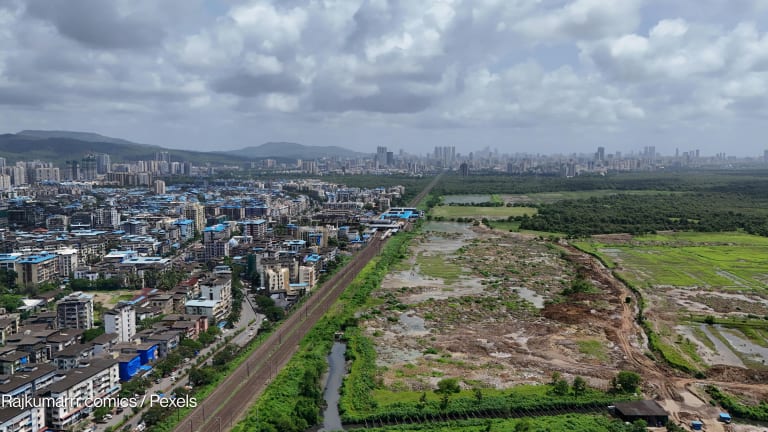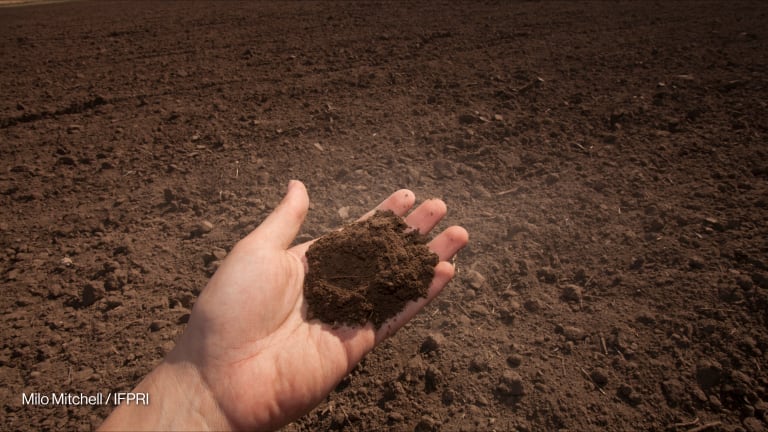
We have less than a year until the next global climate summit to show meaningful progress on climate action. We owe it to those who are already suffering from the impact of global warming today and — as Greta Thunberg made painfully clear at the United Nations Climate Action Summit in New York — we also owe it to future generations. Inaction is no longer an option: our legacy cannot be an unliveable planet.
Climate change is making our world less equal. It is reversing decades of progress in the fight against poverty. And as the global youth climate movement has said loud and clear, it is also introducing profound inequalities between generations. A new report by the Global Commission on Adaptation estimates that 100 million people could be pushed back into poverty over the next decade as a result of the consequences of global warming.
That poor countries are shouldering the heaviest costs of climate change, when they have done the least to cause it, is a stain on our collective morals. We must do everything in our power to prevent the profound injustice of climate apartheid.
The U.N. Climate Action Summit last month — with its focus on concrete solutions and timelines — has given us a renewed sense of optimism that we can contain global warming and successfully adapt to its effects.
For example, the Bill and Melinda Gates Foundation, the World Bank, and several governments announced a $790 million commitment to help more than 300 million small-scale farmers adapt to the worst effects of global warming, which include more frequents droughts and catastrophic flooding. The commitment came in response to the Global Commission’s call for a “Year of Action” to accelerate initiatives that help communities adapt successfully to climate change. Enhancing the resilience of smallholder farmers is one of the core initiatives of the Commission’s Action Track on Agriculture and Food Security.
We can all learn from communities that have had to adapt first and fast to climate change. Without drought-resistant seeds and better water management, climate change could depress agriculture yields by up to 20% by 2050. The livelihoods of millions of smallholder farmers are at risk.
As U.N. Secretary-General António Guterres remarked after the summit, when it comes to the climate emergency, “we have a long way to go, but the movement has begun.”
We believe the onus is on affluent nations to invest in solutions for this global problem. The U.N.-backed Green Climate Fund, which supports climate-smart farming in Ghana and rainwater storage in the Marshall Islands, among many other adaptation projects, needs to refill its coffers because only half of the $10 billion pledged by rich nations in 2014 materialized.
Long-term planning and funding are key to stopping climate apartheid in its tracks. For example, early-warning systems against natural disasters pay for themselves manifold in lives saved and assets spared. Bangladesh leads the way here, so far allocating about $500 million to climate-adaptation measures, including an early-warning system for typhoons.
The Global Commission found that investing $1.8 trillion globally by 2030 in just five key areas — early warning systems, climate-resilient infrastructure, improved dryland agriculture, mangrove protection, and water security — could generate $7.1 trillion in total net benefits. This constitutes proof, if any were needed, that climate-resilience measures are some of the best investments a country, city, or business can make.
Our hope is that between now and the Climate Adaptation Summit in The Netherlands in October 2020, more governments, businesses and civil society leaders will launch ambitious initiatives to help communities adapt to our warming planet. We now better understand that even when climate change manifests itself far from our borders — in the tundra fires across Siberia or the death of a glacier in Iceland — helping others to adapt helps us all.
But if we fail to include fairness and equity in how we adapt to a warming planet, we risk pushing millions more people into poverty. And we know how that story ends — with more conflict, migration, and instability. We have a choice — we can delay and pay, or plan and prosper.
But we are optimists. We believe humans are resourceful as well as moral beings. By applying social justice we can transform key economic systems to give everyone a chance of living, and living well, on a warming planet. It is in our power to do this and so we must.









